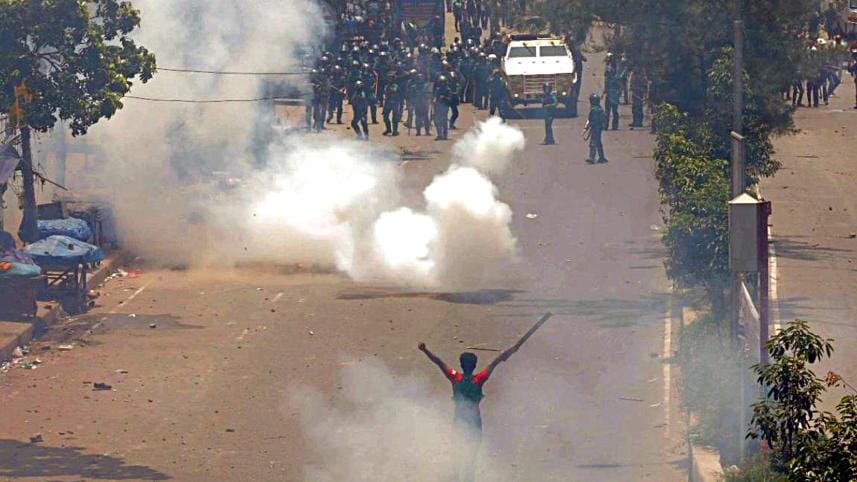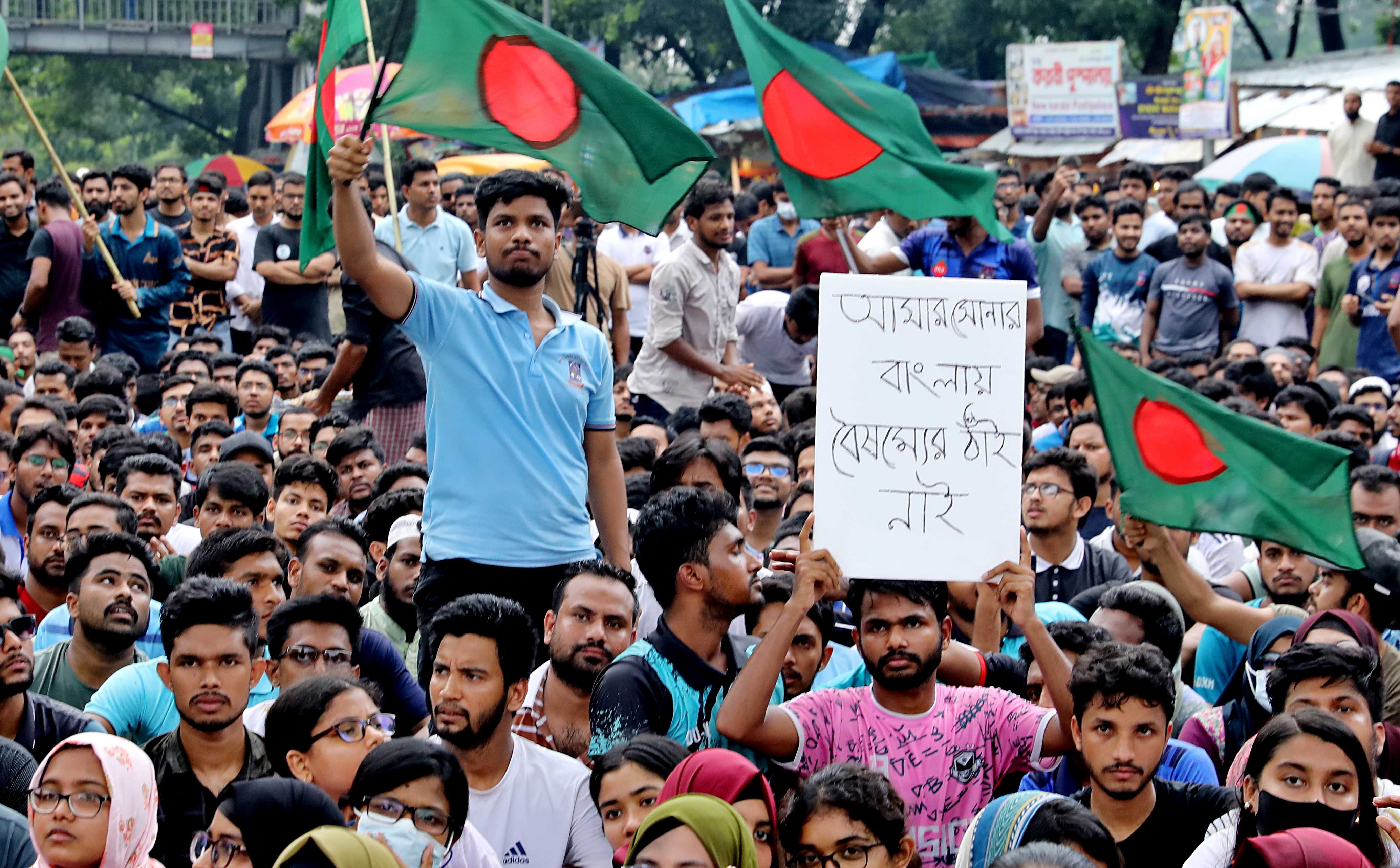Is accuracy too much to ask of a July martyrs’ list?

The listing of July martyrs was never meant to be just another bureaucratic formality. It symbolises the state's pledge to remember our heroes properly—an obligation to honour, not merely record, those who died or bled during the uprising. A credible list is also the stepping stone for ensuring justice and preserving national memory for posterity. Yet, according to a recent investigative report by Prothom Alo, at least 52 of the 834 martyrs listed officially do not meet the legal definition of a July martyr. In other words, these individuals were not July martyrs at all, yet they received the recognition.
This has not only diminished the dignity of actual martyrs but also exposed a failure long entrenched within state institutions—including the ministry responsible for the botchwork—to uphold truth as a solemn public duty.
In matters like this, the importance of truth cannot be overstated. Regardless of what led to the flawed compilation, the fact that it has happened seems inevitable in hindsight, given our history of mismanagement and politicisation in such listings over the decades, most notably in the case of freedom fighters, whose rolls remain questionable to this day. Lax verification, institutional complacency, and the temptation to inflate lists for political or financial gain have created a culture in which errors—and even deliberate falsifications—can pass unchecked. False information misdirects or denies justice, wastes resources, and erodes trust. And when the state itself gets vital facts wrong, the consequences are far graver, as historical truth forms one of the foundations of collective identity.
The July Uprising Martyr Families and July Warriors Welfare and Rehabilitation Ordinance, 2025 clearly states that only those killed by state security forces or ruling party affiliates during the uprising qualify as July martyrs. But the current list, according to Prothom Alo, includes 35 people who died in arson-related fires, three in road accidents, two from illness, one from electrocution, and several killed in personal disputes or clashes unrelated to the uprising. Even three policemen, a Chhatra League leader, and one involved in attacks on July protesters were included. If a newsroom can expose such clearly verifiable cases of ineligibility within two months, what were the Ministry of Liberation War Affairs and the Directorate of July Mass Uprising doing with all their mandate, budget, and resources?
This is not a victimless error. It diverts benefits away from the families of true martyrs, rewards undeserving families, signals to citizens that the state's memory can be gamed, thus making a mockery of the whole process. Meanwhile, many families who lost loved ones in the uprising still wait for proper recognition and assistance. Against this backdrop, seeing the roll of honour padded with ineligible names is not just insulting; it is an injustice that prolongs suffering. The benefits attached to state recognition—including Tk 30 lakh, monthly stipends, and flats in Dhaka—have understandably created strong incentives for cheating. Previously, the July Shahid Smriti Foundation also reported forged papers and photoshopped injuries. This is the opposite of what a national roll of honour is meant to inspire.
The government's assurance that fake names will be removed from the list is welcome. But the public deserves more than assurances. They deserve to see proper corrective action supported by a robust administrative framework. The goal here is not to shame families who were misclassified, or who somehow got their names included, but to build a system that honours the dead by getting the facts right. How should the government proceed?
Start with a moratorium. Suspend all benefits for disputed names until case-level re-verification is complete, with expedited timelines for families in clear compliance. Declare the re-verification criteria and every removal, citing the exact clause of the ordinance, so citizens can see that the law, not connections, is driving decisions.
Second, separate recognition from payment. Create a two-gate process: first, determine status through an independent vetting panel chaired by a retired judge along with medical-forensic and human-rights experts; second, release benefits only after documentary corroboration—FIRs, autopsy reports, medical records, or verified witness statements—has been digitally cross-checked. Publish a redacted case digest for every confirmed martyr.
Third, harden the data. Assign each case a unique digital ID, mandate cross-checks across police, health MIS, and local administration, and expose a public registry that logs every change with a timestamp and reason code. The July list should be auditable like a national budget. To protect genuine beneficiaries, create a fast-track appeal process involving external review and guaranteed turnaround.
Fourth, align law and enforcement. The ordinance already empowers the state to act. Use those powers consistently. Claw back funds from proven fraud, punish brokers who falsified paperwork, and sanction negligent officials. Protect whistle-blowers inside offices and clinics who flag suspicious files.
Finally, remember the moral horizon. The July uprising is not just an event. It is a standard by which the republic will measure itself for generations. Inflating the martyrs' count for politics or personal gain is wrong. What is right is ensuring accuracy, even when it is slow or costly. Accuracy dignifies the dead, steadies the living, and teaches the young that public honour is earned, not invented.
The government cannot congratulate itself for re-verifying a list it should never have botched in the first place. Until the revised roll is complete, public, and auditable, the only honest verdict is this: the government has broken public trust in this respect, and it must earn it back, line by verified line.
Kazi ASM Nurul Huda is associate professor of philosophy at the University of Dhaka, and the Cmelikova Visiting International Scholar in Leadership and Ethics at the University of Richmond. He can be reached at huda@du.ac.bd.
Views expressed in this article are the author's own.
Follow The Daily Star Opinion on Facebook for the latest opinions, commentaries and analyses by experts and professionals. To contribute your article or letter to The Daily Star Opinion, see our guidelines for submission.




 For all latest news, follow The Daily Star's Google News channel.
For all latest news, follow The Daily Star's Google News channel. 

Comments